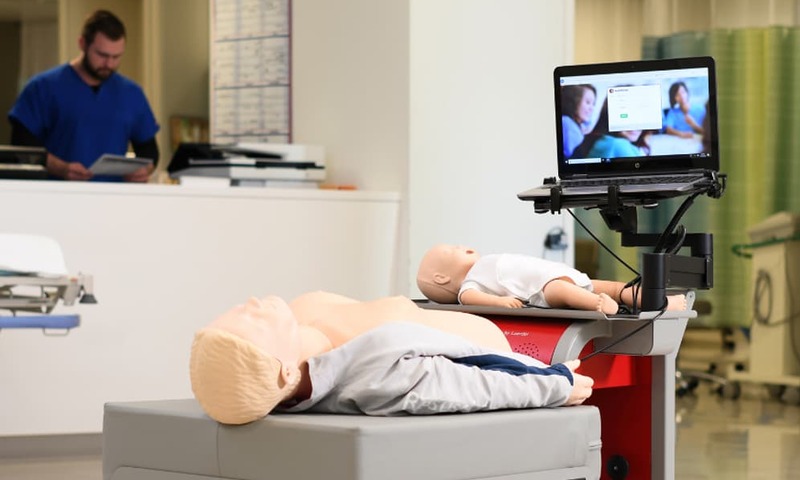The need for reliable resuscitation training is only increasing. More than 209,000 cardiac arrests occur in U.S. hospitals every year, with only 26 percent of patients surviving in-hospital cardiac arrest. To ensure its students are receiving the highest quality training, the Biola University nursing program is adopting RQI® 2025, a digital resuscitation program from the American Heart Association and Laerdal Medical. Biola is one of the first universities in Southern California to implement the equipment into its curriculum.
“The nursing program is excited to be one of the first nursing programs in the area to adopt the RQI educational program,” said Dr. Rachel Van Niekerk, director of the nursing program. “We believe that with this new technology our graduates will enter the workforce with greater confidence in performing high quality CPR, an important and necessary skill for all nursing professionals.”
Studies show that the conventional two-year Basic Life Support (BLS) training cycle is not optimal for achieving the mastery of high-quality CPR skills needed to save more lives. Skills diminish in as few as three months after training is completed, so the implementation of RQI 2025 will ensure quarterly quality improvement sessions for all Biola nursing students. These sessions will consist of both eLearning cognitive assessment activities and skills sessions at the RQI simulation station in the Alton and Lydia Lim Center for Science, Technology and Health on Biola’s campus.
The eLearning includes cognitive assessment activities that will ask students to apply cognitive knowledge by treating a patient within the steps of an algorithm. The skills simulation station will provide students with real-time audio and visual feedback as they proceed through ventilations and compressions on adult and infant manikins. Afterward, a debrief will score students on hand placement, rate, recoil, chest compression fraction and depth of compressions, as well as ventilation feedback so they will know what they did well on and where improvement is needed.
Since the introduction of the RQI program to schools in 2015, more than 2,400 hospitals and 2 million nurses have adopted and enrolled in the program, and it is estimated that 20,000 lives have been saved because of it. Biola is committed to providing its students with the highest quality and applicable education, and the RQI 2025 equipment is another way the School of Science, Technology and Health and the nursing program is growing in preparing nursing students for the field.
Visit Biola’s website to learn more about Biola’s undergraduate nursing degree. Applications are now open for Fall 2025 and the early action deadline is November 30, 2024.
Biola nursing alumni are invited to join the nursing Facebook group to engage with the Biola nursing alumni community.
Written by Sarah Dougher, media relations specialist. For more information, email media.relations@biola.edu.
 Biola University
Biola University

.jpg)
.jpg)
.jpg)